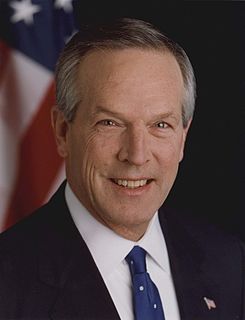A Quote by Donald Trump
We shouldn't have been in Iraq, but HillaryClinton did vote for it. We shouldn't have been in Iraq, but once we were in Iraq, we should have never left the way.
Related Quotes
The Western alliance should have supported the Sunni opposition against the Assad regime from the beginning. As far as Iraq is concerned, if it had stayed stable the way it was in 2008, IS would not have been able to expand in Iraq the way they did. The mistake was that Barack Obama withdrew the armed forces from Iraq too fast.
I made a movie to explain to the American public what had been achieved in regards to disarmament of Iraq and why inspectors aren't in Iraq today and detailing the very complex, murky history of interaction between Iraq, the United Nations and the United States. It is most definitely not a pro-Iraq movie. It is a pro-truth movie.
And on this issue of the Shia in Iraq, I think there's been a certain amount of, frankly, Terry, a kind of pop sociology in America that, you know, somehow the Shia can't get along with the Sunni and the Shia in Iraq just want to establish some kind of Islamic fundamentalist regime. There's almost no evidence of that at all. Iraq's always been very secular.
Since United States military operations in Iraq began in 2003, I have visited Iraq at least 15 times. But unlike politicians who visit, the question for me has never been why the U.S. got into Iraq. Instead, as the CEO of Blackwater, the urgent question was how the company I head could perform the duties asked of us by the U.S. State Department.
There's no violence worse than the violence of Iraq. For the last fifty years Iraq has been living a nightmare of violence and terror. It's been a horrible experience and people in Iraq will need a lot of time and work to get over the disastrous effects. But first we have to think about how to stop the violence, so that the bloodshed stops. In spite of everything, on the personal level I don't easily lose hope.

































